Arts & Culture
-

All the world’s a stage
Richard Sennett urges revitalizing public life, spaces, politics by creating spaces that engage imagination
-

Are humanities stuck in ivory tower? Should they be?
Two literature scholars wrestle over whether and how professors can engage with pressing political, social issues of day
-

Courtney B. Vance, Angela Bassett honored as Artists of the Year
Cultural Rhythms’ weeklong celebration highlights student performers, food, and fashion
-
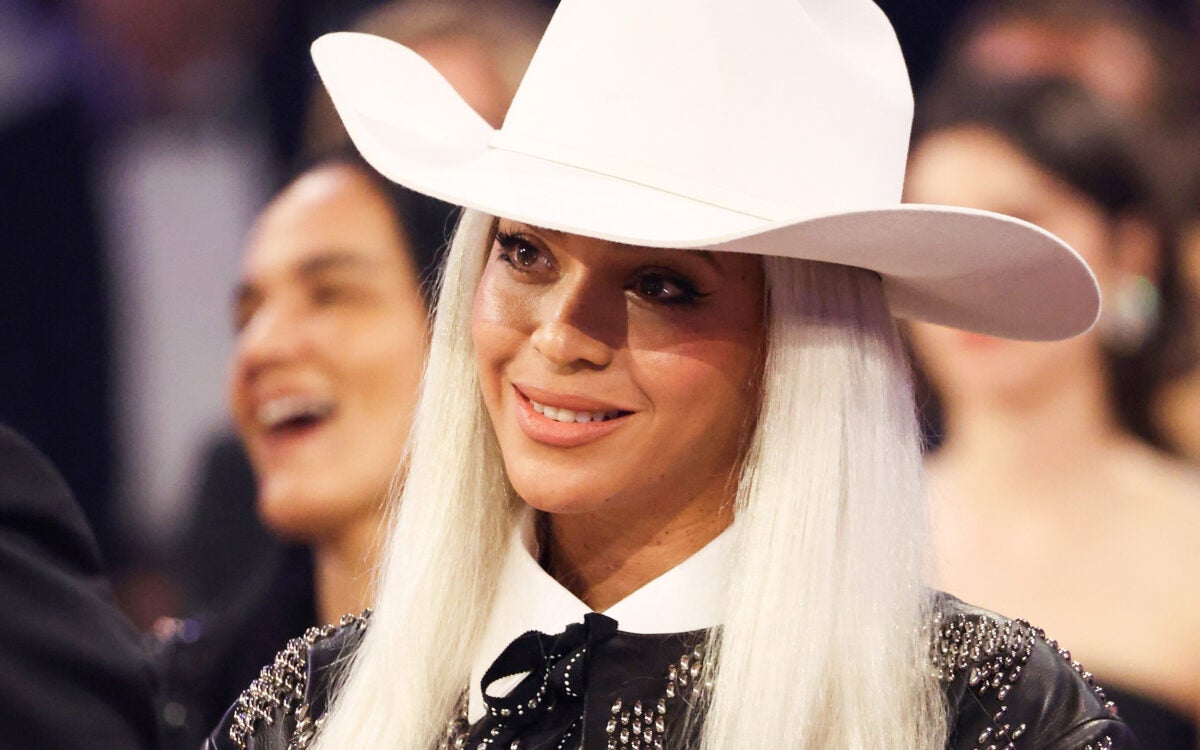
Is Beyoncé’s new album country?
Release ignites hot talk about genre’s less-discussed Black roots, what constitutes authenticity
-
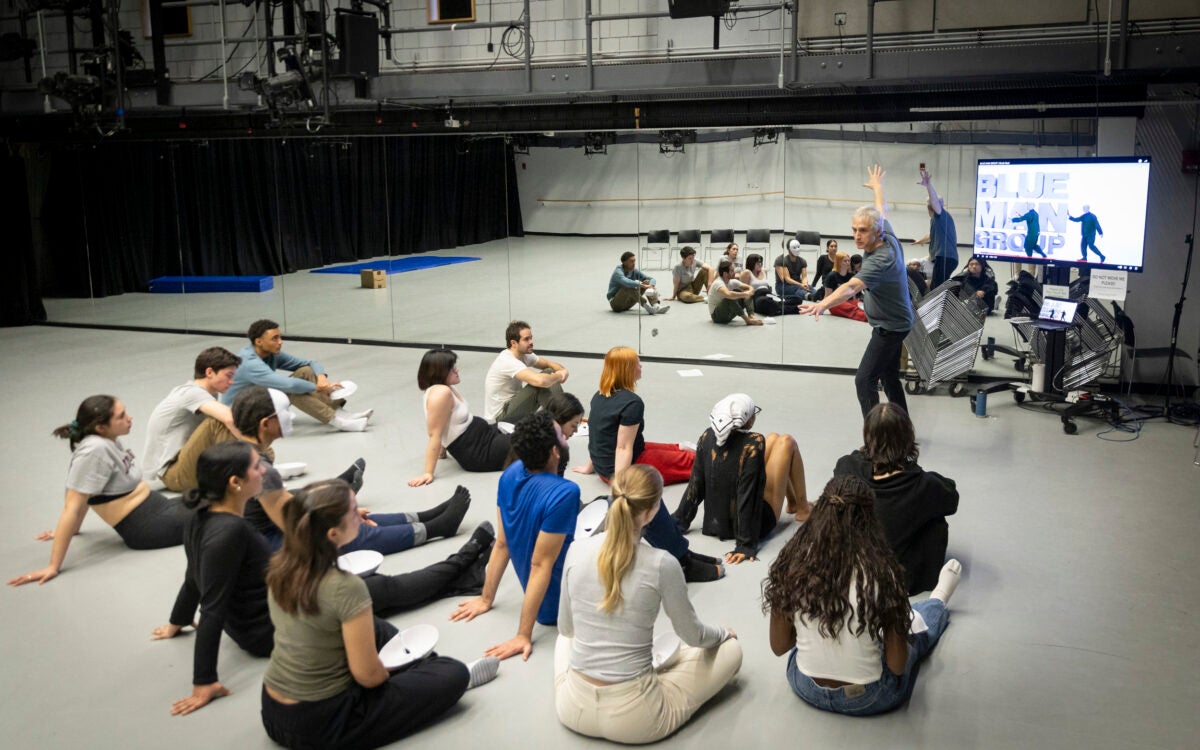
Storytelling through body language
Veteran of Blue Man Group teaches students art of building a character without saying a word
-
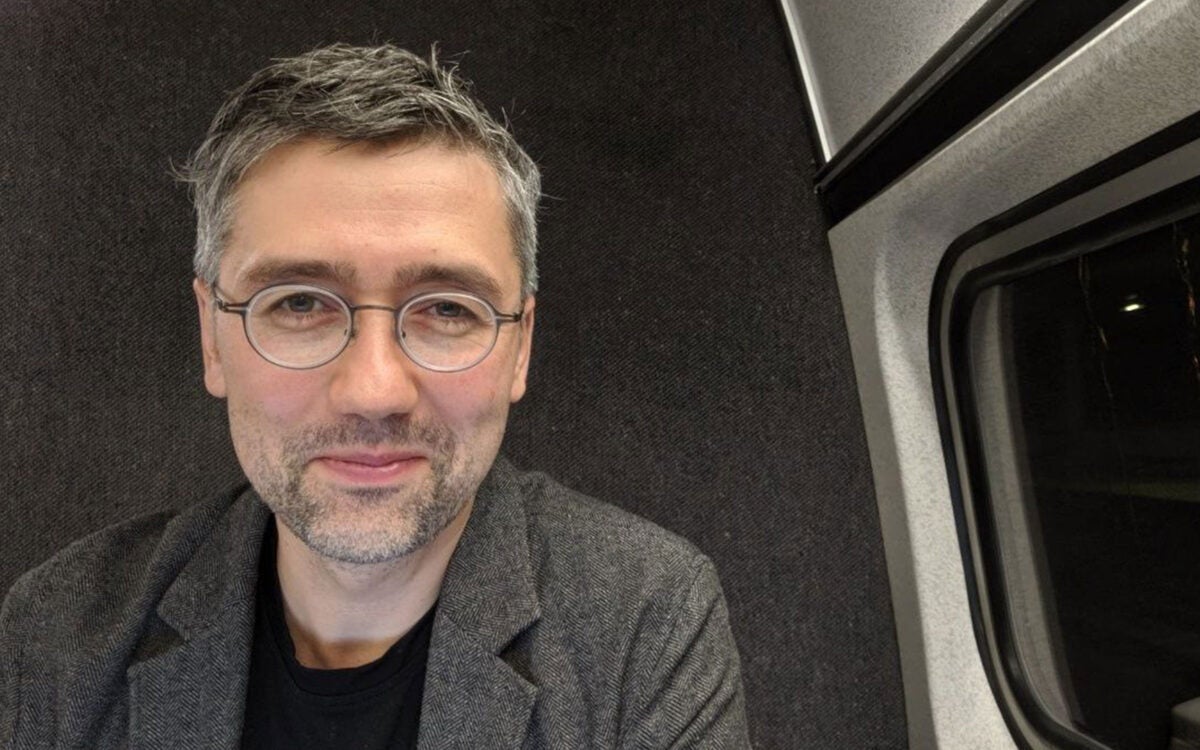
How I learned to stop worrying and love AI
Former software engineer turned English professor talks about future of literary studies in age of ChatGPT
-
Jazz at Harvard
Harvard sophomore Andrew Kennard discusses his love of jazz and his experience mentoring students at the Cambridge Rindge and Latin School, preparing with them for the arrival of Wynton Marsalis at Harvard.
-
In praise of America’s music
As part of a two-year lecture and performance series, jazz great Wynton Marsalis performed with a seven-piece band at Sanders Theatre.
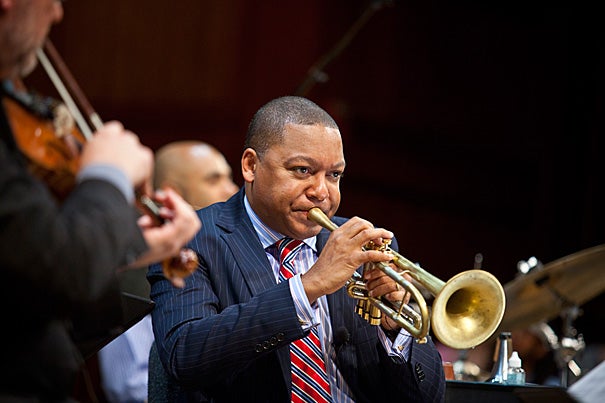
-
Breaking the sonnet barrier
Poet and fellow at the Radcliffe Institute for Advanced Study Anna Maria Hong takes the traditional sonnet form and breaks it wide open in her new volume of poetry.
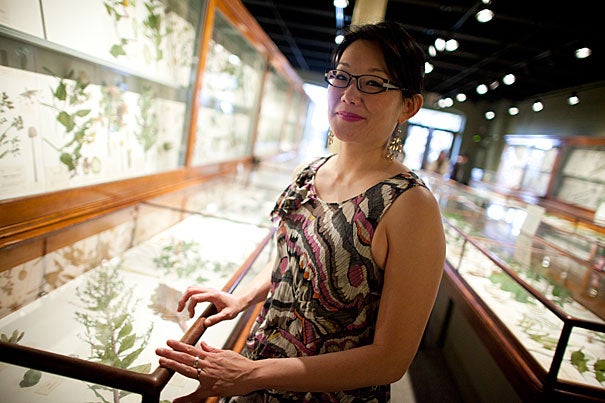
-
Art and catastrophe
At a photo exhibit on Chernobyl, 25 years after the disaster, viewers get glimpses of both hope and horror.

-
Principled expression
A new exhibition of works at the Rudenstine Gallery explores the work of artist Elizabeth Catlett.
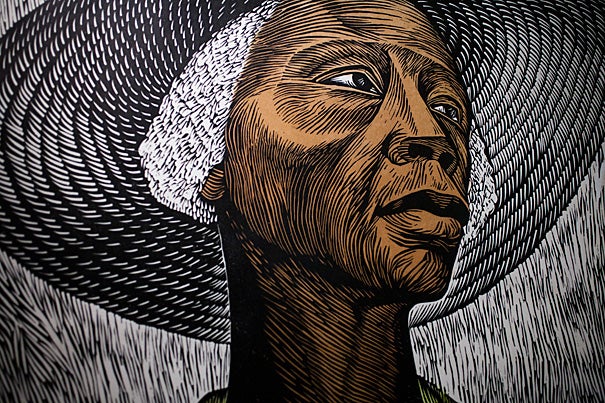
-
Understanding Global Trade
Galen L. Stone Professor of International Trade Elhanan Helpman discusses the revolutions in trade theory, showing how scholars shifted their trade flow analyses from sectoral levels to business-firm levels to clarify the growing roles of multinational corporations, offshoring, and outsourcing in the international division of labor.
-
Why and how
Professor Marjorie Garber’s new book examines “why we read literature, why we study it, and why it doesn’t need to have an application someplace else in order to be definitive in its talking about human life and culture.”
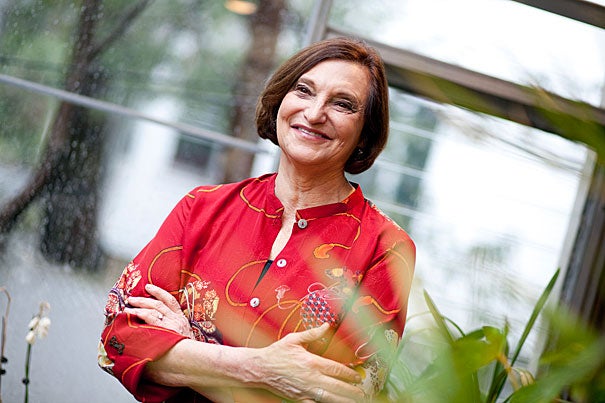
-
Field Notes on Science & Nature
Michael Canfield, a lecturer on organismic and evolutionary biology, visits an eclectic range of scientific disciplines, offering examples that professional naturalists can emulate to fine-tune their own field methods, along with practical advice that amateur naturalists and students can use to document their adventures.
-
A musical education
Harvard students are studying and performing the modern, eclectic works of composer John Adams.
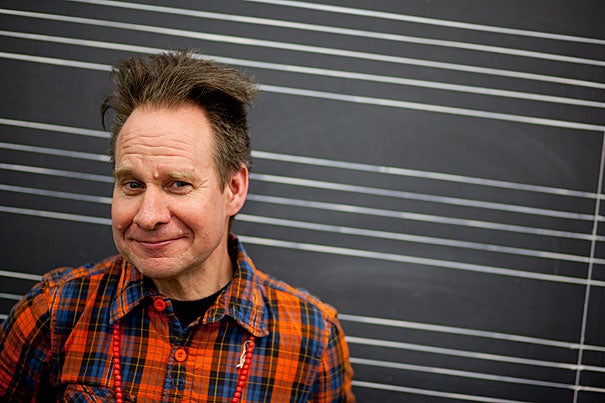
-
Another Freedom: The Alternative History of an Idea
Curt Hugo Reisinger Professor of Slavic Languages and Literatures and Professor of Comparative Literature Svetlana Boym explores the cross-cultural history of the idea of freedom, discusses its limitations, and wonders how it can be newly imagined.
-
‘Lost’ with Carlton Cuse
Harvard graduate and award-winning producer Carlton Cuse ’81 returned to campus to offer students a look behind the scenes at his TV show “Lost” and insight into his creative process.
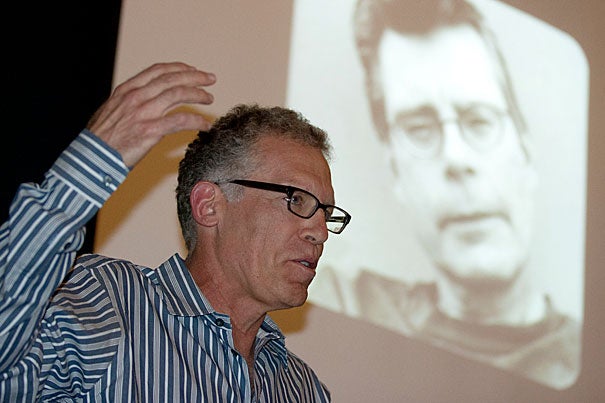
-
Lasting power
Using personal narratives, several Harvard scholars recall experiences with their faiths with the help of objects in the Harvard Art Museums’ collections.
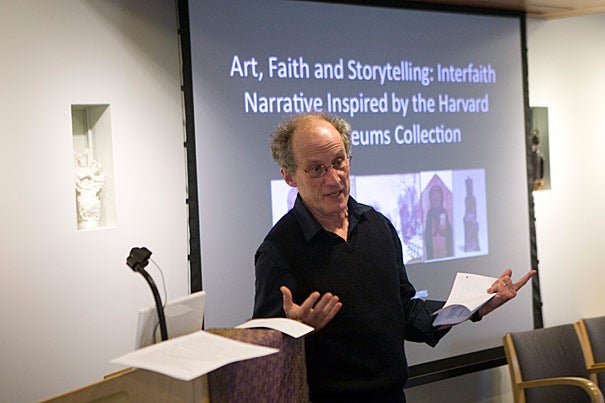
-
Art of the ‘Divine’
“The Divine Comedy,” a daring and grand exhibit in three parts, gives a modern spin to Dante’s three realms of the dead, and shows how art can break disciplinary boundaries.
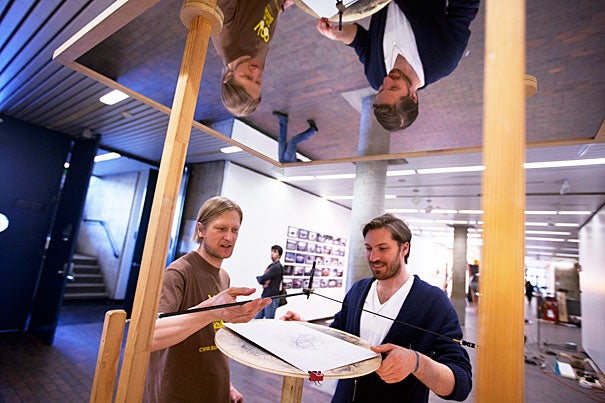
-
A vanishing neighborhood
Two Harvard ethnographers directed the prize-winning “Foreign Parts,” a documentary that captures the sights and sounds of Willets Point, a vibrant, vanishing corner of New York City.
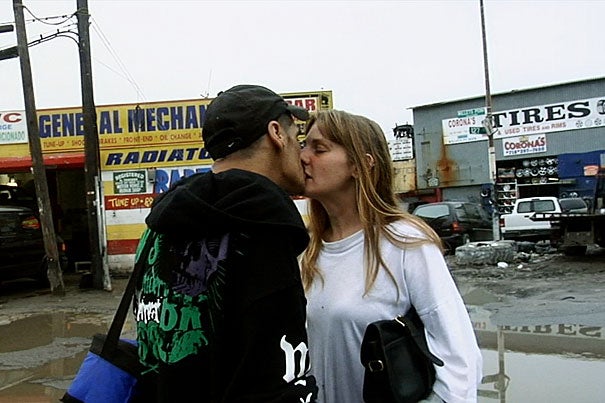
-
Hyperboles: The Rhetoric of Excess in Baroque Literature and Thought
Associate Professor of Comparative Literature Christopher Johnson defends the role of Baroque period hyperbole in Spanish and Mexican lyrics, English drama, and French philosophy.
-
High Financier: The Lives and Time of Siegmund Warburg
This biography by Niall Ferguson, Laurence A. Tisch Professor of History and Professor of Business Administration, chronicles the life of Siegmund Warburg, a financial wiz, prophet of globalization, and strategic businessman.
-
His Majesty’s Opponent: Subhas Chandra and India’s Struggle Against Empire
Gardiner Professor of Oceanic History and Affairs Sugata Bose parses the life of Indian revolutionary Subhas Chandra Bose, who struggled to liberate his people from British rule and led the Indian National Army against Allied Forces during World War II.
-
Photographer to receive Arts Medal
Photographer Susan Meiselas, Ed.M. ’71, will receive the 2011 Harvard Arts Medal, as part of Harvard’s annual Arts First weekend, which runs April 28-May 1.
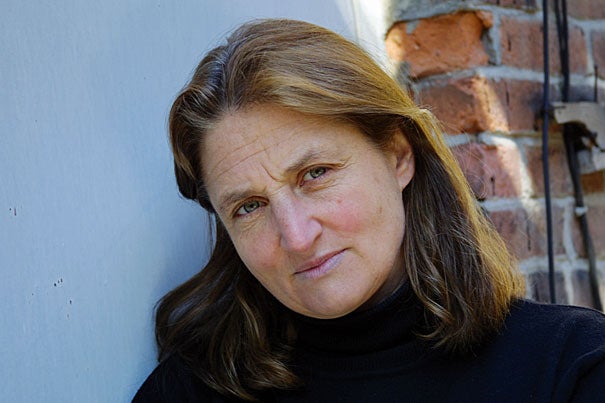
-
Thinking outside the gilded frame
Far from icons of the past, Bettina Burch’s paintings of the HGSE and CGIS community — from janitors to students to deans — gently upend the concept of the “Harvard portrait.”
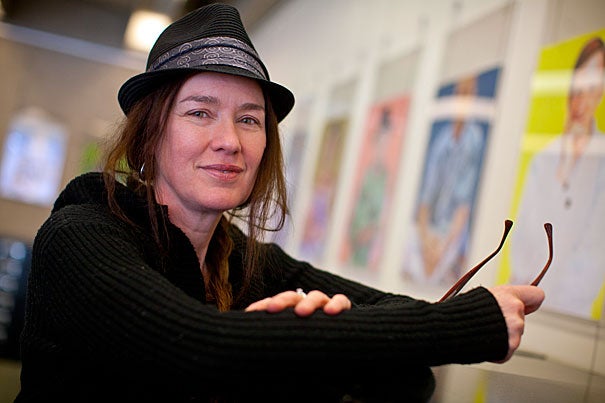
-
A passion for unloving art
Australian native Maria Gough, the Joseph Pulitzer Jr. Professor of Modern Art at Harvard, studies the Russian and Soviet avant-garde periods because they portray “what the function of the artist is in a revolutionary climate.”
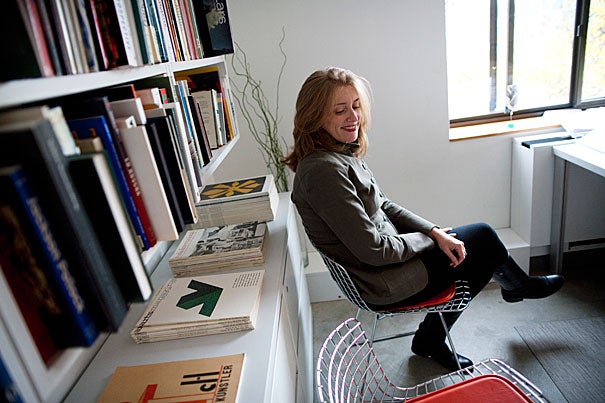
-
Fleeing America
In “Liberty’s Exiles: American Loyalists in the Revolutionary World,” historian Maya Jasanoff reveals the lesser-known history of loyalists after the Revolution.
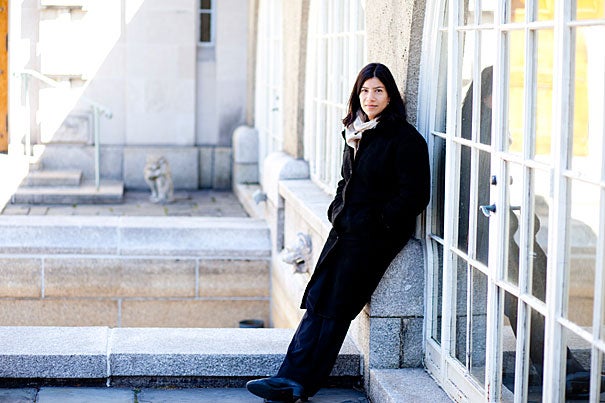
-
All that jazz
In four days of festivities, Harvard celebrates four decades of dedication to a great American musical form.
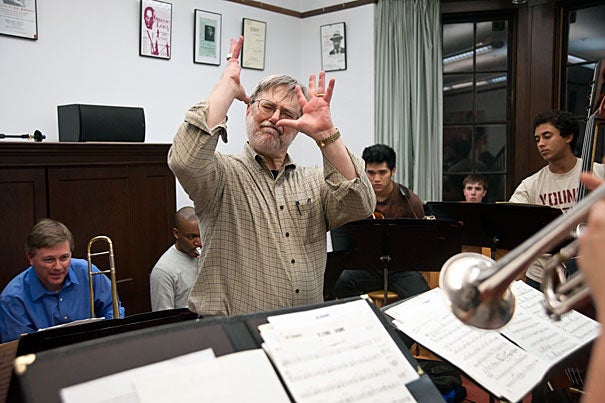
-
Objects of instruction
Harvard College Dean Evelynn M. Hammonds and some of Harvard’s leading faculty convened at Harvard Hall on Friday (April 1) to participate in “Teaching with Collections,” a discussion of the University’s treasures and their use in the classroom.
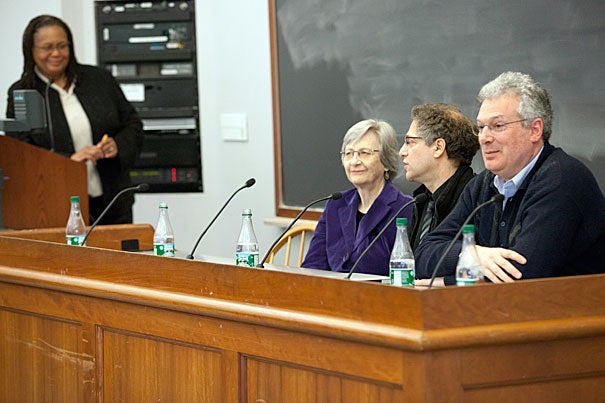
-
Secret identity
Michael Fosberg learned of his African-American roots as an adult, and will tell his story at Harvard on April 6 in his one-man play “Incognito.”
-
Lessons from a master
Jazz great Wynton Marsalis will make several visits to campus over the next two years, lecturing on a variety of topics to illuminate the relationship between American music and the American identity.
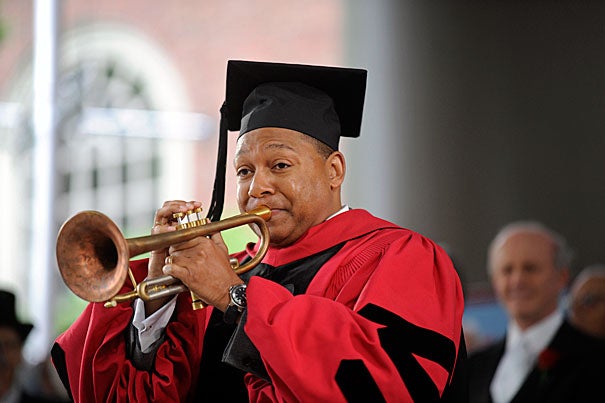
-
Digitizing the classics
Professor works to transform ancient Greek texts and their Arabic translations into an open-access, computerized format that could provide important insights into the development of science.
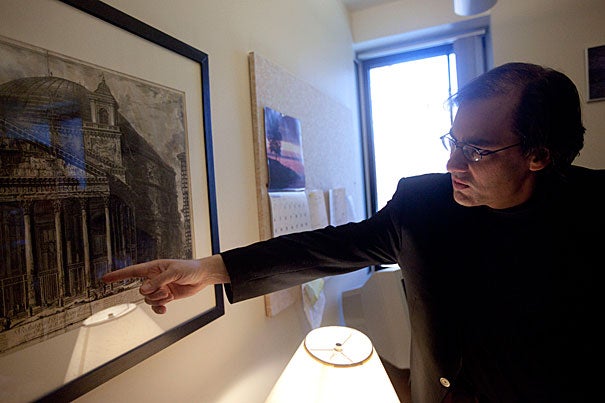
-
Theater’s new frontiers
Offbeat Director John Tiffany, whose company stages productions in unlikely locales, is using a fellowship year at Radcliffe to explore the ways that people communicate, complete with tics.
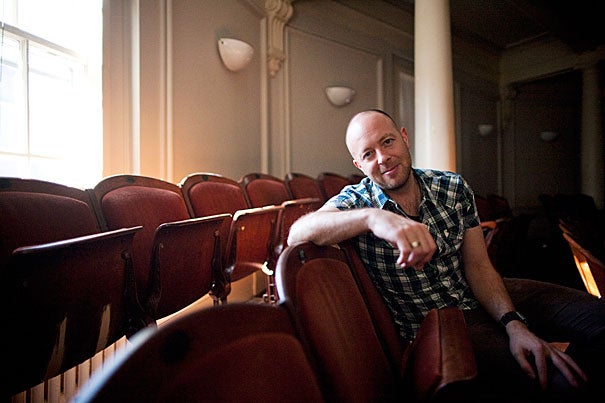
-
Just the fax
A traveling exhibition at the Carpenter Center shows off the humble fax as a medium for art, displacing the art of the hand with the foibles of electronic transmission. The exhibition continues to April 10.
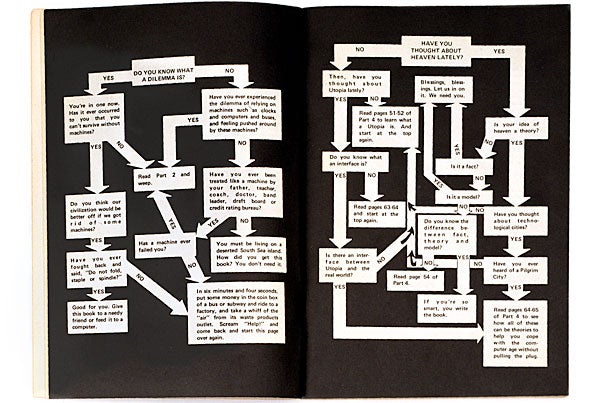
-
Breaking the sound barrier
Aaron Dworkin, violinist and founder of the Sphinx Organization, spoke at Harvard about his movement to bring diversity to classical music.
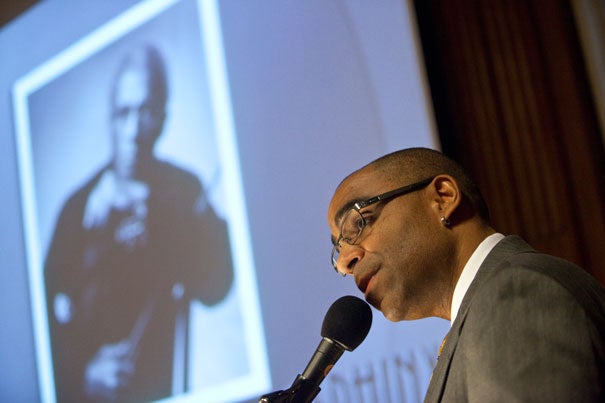
-
The Moche of Ancient Peru: Media and Messages
Jeffrey Quilter, a senior lecturer on anthropology and deputy director for curatorial affairs and curator at Harvard’s Peabody Museum, introduces the Moche civilization and explores current thinking about Moche politics, history, society, and religion.


